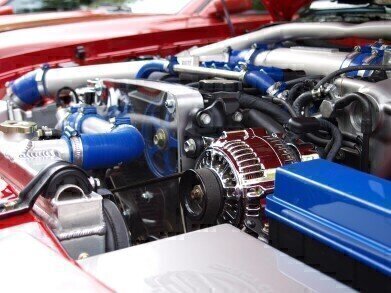Air Clean Up
Diesel Engines Are Four Times More Pollutant than Trucks and Buses
Nov 09 2015
Separate studies in the UK and Norway have uncovered startling evidence that new diesel cars emit four times the amount of toxic pollution than buses, lorries and heavy goods vehicles (HGVs).
Furthermore, it has emerged that the technology to drastically reduce these emissions is readily available (and is implemented in many larger vehicles), but diesel car manufacturers are avoiding it because of cost and convenience.
The news could be seen as another nail in the coffin of diesel cars, especially in the wake of the VW scandal which has put a media spotlight onto NOx emissions.
Different Studies, Same Results
An investigation by the Norway Centre for Transport Research compared the emissions from 12 heavy vehicles with those from seven modern diesel cars. Whilst all 12 of the larger vehicles passed the Euro 6 (the most recent and strictest standard introduced earlier this year by the EU), on average the seven diesel cars emitted four times as much nitrogen oxides (NOx). Even more alarmingly, the amount of pollutants produced shot up to 11 times the maximum legal limit in colder weather.
Meanwhile, a separate study conducted by Transport for London compared nine different diesel models (including super-minis all the way up to SUVs) with one LGV and three HGVs. Almost all of the cars emitted similar levels of NOx as the larger vehicles, but the smallest diesel vehicle pumped out over double the pollutants of the HGVs and around the same amount as the LGV.
Both the tests in London and in Norway were carried out in laboratory conditions. Crucially, however, they are far more representative of a real-life driving simulation than the official ones used by the EU regulatory body.
The Technology is there – the Desire to Use it Is Not
The fact that the larger vehicles tested in Norway were producing ten times fewer emissions than previous incarnations proves that a viable solution is already in existence. All that is required is to add a substance called urea to the exhaust gases to neutralise them, but manufacturers are reluctant to do so.
This is because adding a large urea tank to a diesel car would be cumbersome and reduce fuel efficiency, while a smaller one would require constant refilling. Meanwhile, buses, trucks and lorries are already sizable as it is, so a larger tank can more easily be incorporated. Furthermore, the drivers of such vehicles are already in employment when using them, so don’t mind refilling the urea tanks as a normal driver would.
The situation has caused a public outcry among politicians and environmental lobbyists, with Catherine Bearder, an MEP for the Liberal Democrats denouncing the carmakers for their negligence. “It is disgraceful that car manufacturers have failed to reduce deadly emissions when the technology to do so is affordable and readily available,” remarked Bearder. “The dramatic reduction in NOx emissions from heavier vehicles is a result of far stricter EU tests, in place since 2011, that reflect real-world driving conditions. If buses and trucks can comply with these limits, there’s no reason cars can’t as well.”
Events
May 05 2024 Seville, Spain
May 13 2024 Munich, Germany
May 23 2024 Beijing, China
May 23 2024 Beijing, China
Jun 10 2024 Algiers, Algeria














